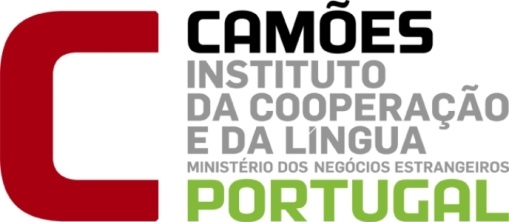The Portuguese Language and Literature Section teaches Portuguese and Lusophone Studies at undergraduate level and BA Honours. Students will be admitted to the Portuguese Language and Literature Section whether or not they have already studied Portuguese.
The courses offered by the Portuguese Language and Literature Section are designed for students of Portuguese as a foreign language. Students for whom Portuguese is a second or home language will be accepted under certain conditions, and after prior discussion with the Section Head.
Student Testimonials:
Portuguese is a highly expressive language, and the wealth of culture that comes with learning it makes it so much more than just a manner of communicating. Since I started learning it, it has always felt as if I had been welcomed into a new culture, and had been made an ‘adopted’ Portuguese-speaker - the vastly diverse community of Portuguese-speaking countries also means that the language has a lot of different identities. Learning Portuguese should be a no-brainer for any student looking to take up a new language. While there may be other widely-spoken languages available to learn at university, Portuguese is highly advantageous for the following reasons: South Africa shares a border with a Portuguese-speaking country, Mozambique, and the language is officially the 6th most spoken native language in the world with over 200 million native speakers. It is the most spoken language in the southern hemisphere, and according to UNESCO, is the fastest growing European language after English.
~ Brandon Moult (BA in Portuguese, UCT)
Portuguese is an extremely valuable language to learn as it exposes one to so much diversity in terms of culture and traditions, different regional and social dialects and most interestingly; a unique kind of humour. The Initial Portuguese language courses that I took this year have taught me so much more about the Lusophone world than I was ever aware of before. What I enjoyed most was learning about the histories of Portuguese-speaking countries and how they came to be. In our classes, we often delved into discussions about the influence of slavery and colonialism for the expansion of the language, but also about how each Lusophone country has its own particular identity despite those tragic historical events. I also learned more about the linguistic patterns romance languages have in common with one another and also about how some of the written commonalities have differing meanings and interpretations. Lastly, I learned different ways to express myself, my thoughts and feelings through learning the Portuguese language. This also taught me new ways of understanding how other people view the world. Learning Portuguese has also given me the ability to communicate better with more Portuguese speaking African students who I've come across in my academic environment here at UCT. Simply being able to greet them and introduce myself in Portuguese has greatly assisted me in bonding with my Angolan and Mozambican friends. They showed much appreciation for me making the effort to connect with them through their mother tongue language. Taking the Portuguese language courses offered by UCT is something I will always be proud of myself for.
~ Tatenda Dandara (Studied First Year Portuguese at UCT)
